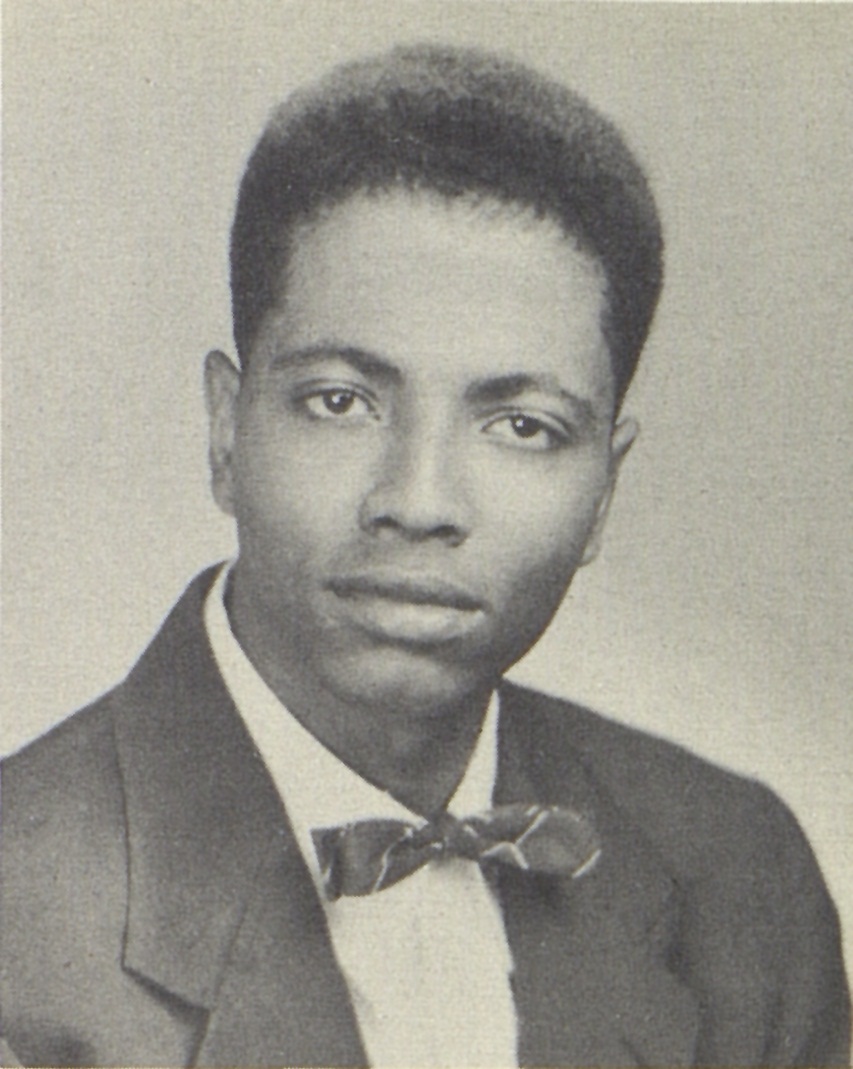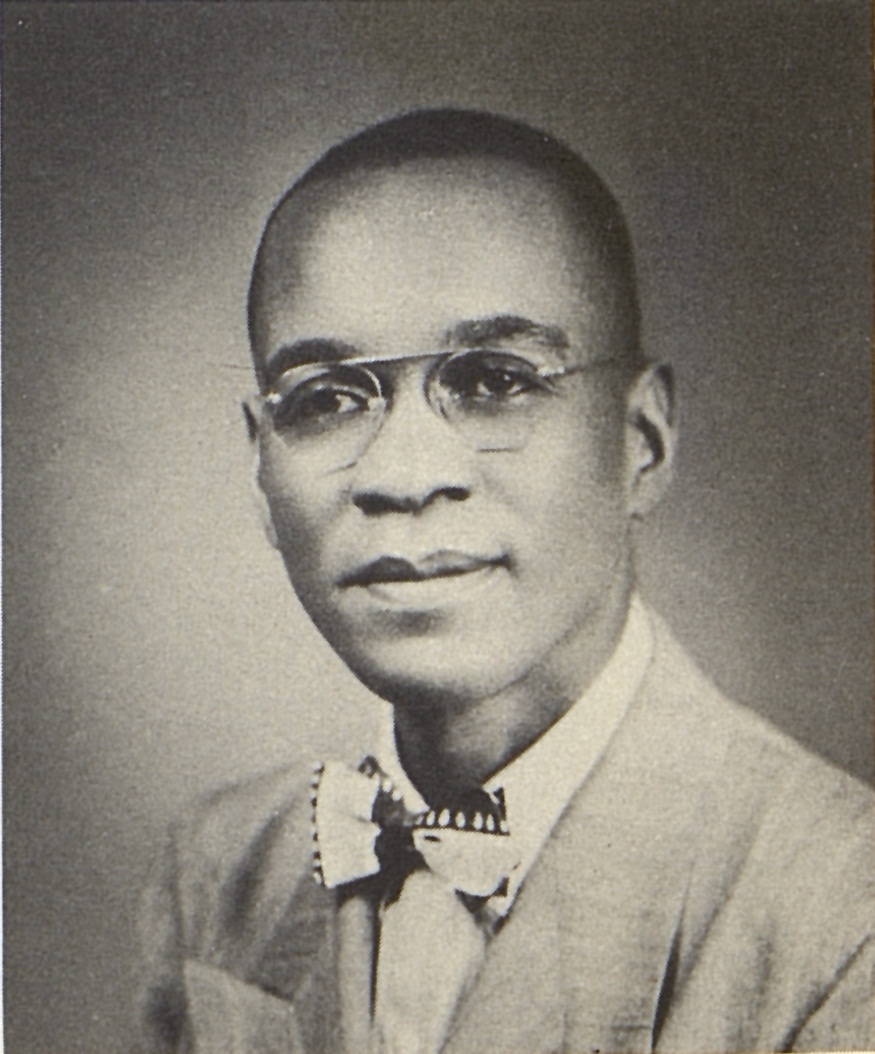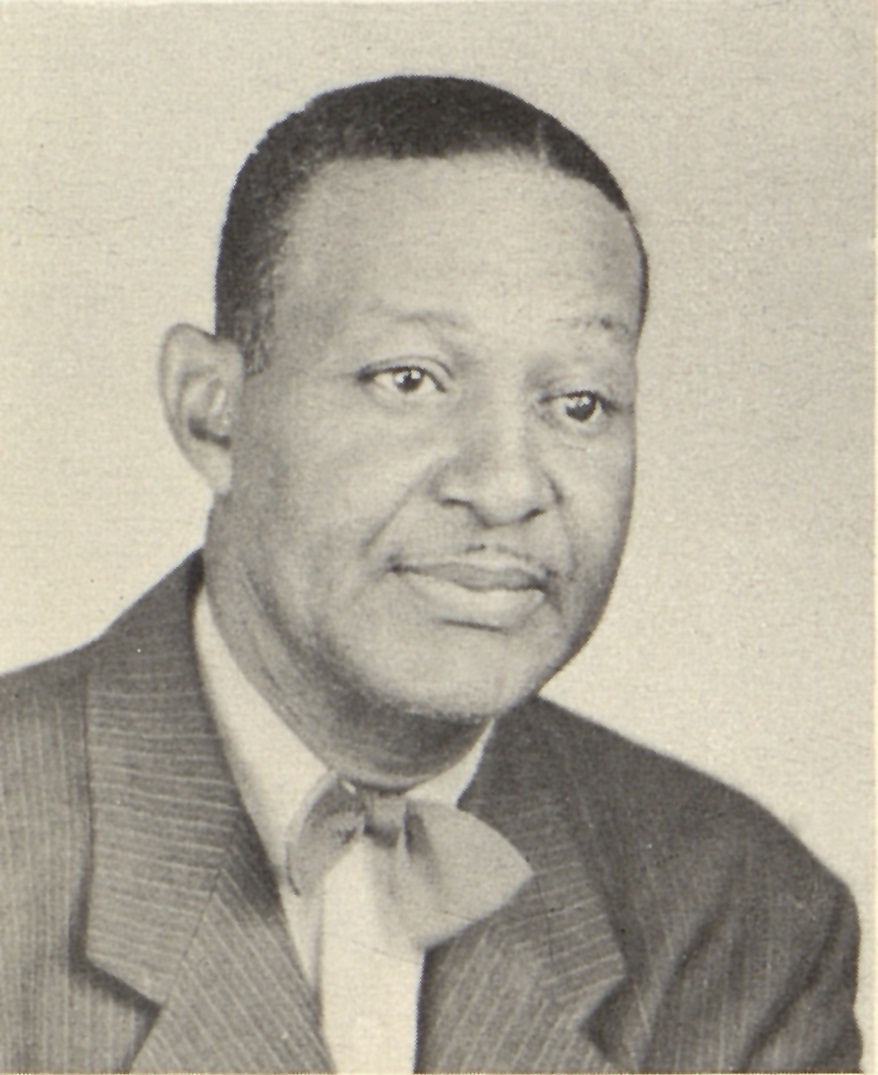
Heman Sweatt, Jacob Carruthers, Elwin Jarmon, Virgil Lott, Dudley Redd, and George Washington, Jr. enrolled at the University of Texas School of Law in September 1950 as the first six African American students at the University of Texas School of Law. Although only Virgil Lott and George Washington, Jr. finished their course of study at the School of Law, the school's first six African American students paved the way for many future students.

Jacob H. Carruthers, Jr., (February 15, 1930-January 4, 2004) was raised in Texas and attended Wheatley High School in Houston. He earned a bachelor’s degree in political science from Samuel Huston College (now Huston-Tillotson University) in Austin in 1950. Mr. Carruthers enrolled in the University of Texas School of Law in September 1950. He left law school after one year to enlist in the U.S. Air Force, serving stateside during the Korean War. After his Air Force service, he enrolled at Texas Southern University in Houston, earning a master’s degree in government in 1958. He taught at Prairie View A&M College from 1961 to 1964 before moving to the University of Colorado, where he earned a doctorate in political science in 1966. After obtaining his doctorate, he taught at Kansas State University for two years.
In 1968, Mr. Carruthers moved to Chicago to join the faculty of Northeastern Illinois State College (now Northeastern Illinois University), where he was already serving as acting director of the Center for Inner City Studies. He was integral to the development of the school’s inner-city studies programs and he shaped the curriculum to reflect the impact of politics and government on African-Americans. Mr. Carruthers taught in the areas of history and education at the Center. A leading expert in classical African civilizations, he authored Intellectual Warfare, Mdw Ntr (an Egyptian hieroglyph meaning “Divine Speech”), Essays in Egyptian Studies, and The Irritated Genie: An Essay on the Haitian Revolution. He co-founded Teaching About Africa, a teacher training program used in the Chicago Public Schools. He served as a founding member and director of the Kemetic Institute, a founding member and priest of the Temple of African Community of Chicago, and the founding president of the Association for the Study of Classical African Civilizations. Northeastern Illinois University’s Center for Inner City Studies was renamed the Jacob H. Carruthers Center for Inner City Studies in his honor in 2005.

Elwin Franklin Jarmon, Jr. (July 23, 1932-August 8, 1997) entered the University of Texas School of Law in September 1950. In attending law school, Mr. Jarmon was following in his father's footsteps. His father, Elwin Franklin Jarmon, Sr., earned a law degree from Robert H. Terrell Law School in Washington, D.C., in 1944. Mr. Jarmon attended the University of Texas School of Law for two years before withdrawing. A veteran of the Korean War, Mr. Jarmon was a Corporal in the U.S. Army.

Dudley D. Redd (October 19, 1907-April 1, 1980) earned his A.B. degree from Wiley College in Marshall, Texas in 1927, where he was a captain on the football team. After graduation, Mr. Redd played semi-pro football and served as a football and track coach in Georgetown, Texas. In 1936, he was appointed as an educational advisor for the Civilian Conservation Corps. Mr. Redd enrolled in the University of Texas School of Law in the fall of 1950 but left after completing one year.

Heman Marion Sweatt (December 11, 1912-October 3, 1982) grew up in Houston, Texas and graduated from Jack Yates High School in 1930. He earned a bachelor’s degree from Wiley College in Marshall, Texas in 1934. Following graduation, he taught school in Cleburne, Texas and served as the school’s acting principal for a year. Mr. Sweatt entered graduate school at the University of Michigan in 1937. He completed two semesters but chose to return to Houston.
Mr. Sweatt, who worked as a mail carrier, was active in voter registration drives in the African-American community and attended NAACP meetings. Mr. Sweatt served as local secretary of the National Alliance of Postal Employees and worked with Houston attorney Frances Scott Key Whittaker to challenge discrimination against African American employees of the Post Office. His experience using the legal system to challenge discrimination prompted Mr. Sweatt to study law. Mr. Sweatt applied for admission to the University of Texas School of Law in 1946. He was denied admission under the state’s desegregation laws. Mr. Sweatt filed a lawsuit against Theophilus S. Painter, the president of the University of Texas, and other university officials.
The district court ordered the state to provide a substantially equal law school for African-American students within six months. Texas State University for Negroes School of Law opened in 1947, but Mr. Sweatt refused to attend the segregated school, choosing instead to pursue his case to the U.S. Supreme Court. Mr. Sweatt, joined by the NAACP, argued that segregated education was inherently unequal because African American students were denied interaction with classmates, extracurricular activities, and the status and alumni network affiliated with the established school. The Supreme Court, in a unanimous opinion written by Chief Justice Vinson, declared that the segregated school did not offer substantial quality in educational opportunities and Heman Sweatt was denied an equal legal education in the segregated school.
In September 1950, Mr. Sweatt, along with five other African-American students, registered for the University of Texas School of Law. While some faculty members were welcoming to the students, others were outwardly hostile. Mr. Sweatt recounted that a Ku Klux Klan group waited for him outside the school on his first Friday evening. Thereafter, he went home immediately after classes to avoid danger. Due to poor health that had plagued Mr. Sweatt throughout the lawsuit, he left the School of Law in 1952 and returned to Houston.
Mr. Sweatt earned a master’s degree in community organizations from Atlanta University Graduate School of Social Work in 1954. He moved to Cleveland, where he worked for the NAACP and the National Urban League for eight years before returning to Atlanta. In Atlanta, he served as assistant director of the Urban League’s southern regional office. He worked on a variety of civil rights projects, from voter registration drives to studies and programs for African Americans migrating to the North. In addition, he taught at Atlanta University.
Every spring, the University of Texas at Austin holds the annual Heman Sweatt Symposium on Civil Rights.

